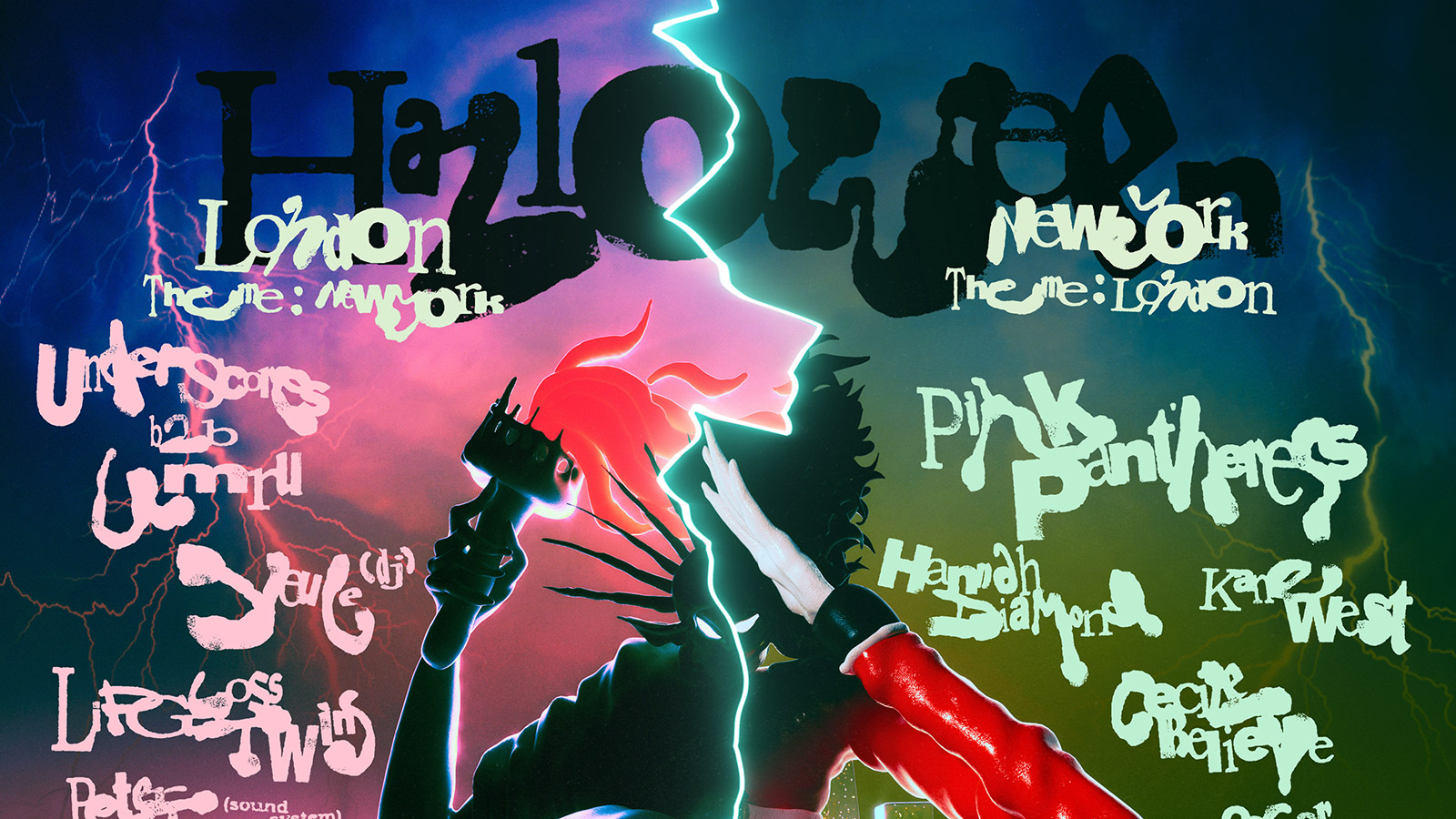
Photography by Braeden Long
Unlike some band origin stories which follow a mapped-out plan for success, Case Oats began as a bluff when singer-songwriter Casey Gomez Walker was asked whether her band – formed alongside drummer Spencer Tweedy – could headline a show in Chicago back in 2018.
At the time, Walker had one self-released single and hadn't yet expanded Case Oats into a full outfit. But without hesitation, she said yes. “It was totally spur of the moment,” Walker recalls. “Like, sure! I can do it. I wrote a bunch of songs really quickly within the span of a couple of weeks to be able to play a set.” That leap of faith, what she now calls “a bit delusional,” turned out to be revelatory.
“After playing that first show, I was like, ‘This feels really good. This is something that I want to do, and continue working at,’” she explains. “I didn’t feel let down or scared by the experience. It was quite the opposite. I felt invigorated and thought, ‘All right, how can I make this more of my life?’”
The early performances enabled Walker and Tweedy to further connect with their material and themselves as musicians. Playing regularly revealed the full potential of the songs, highlighting the moments when individual parts coalesced into something greater. “It was already super felt out, how all of our parts sounded together and what the structure was. And it was special to know that the songs stuck with other people and that had the same impact that they had on me and Spencer,” Walker reflects.
Get the Best Fit take on the week in music direct to your inbox every Friday
The creative partnership between Walker and Tweedy forms the crux of the band. As both musical collaborators and romantic partners, their songwriting process reflects a rare chemistry built upon a significant degree of openness and trust. With Tweedy serving as both the album's producer and engineer, this connection is vital. “I’m not super precious,” Walker says of her relationship with the songs. “I don’t spend that much time with a song after it’s written. Once I finish it and it’s on paper, I’m ready to figure out its full form right away.”
Tweedy describes their creative dynamic as a bond built on a fundamental agreement: “Right off the bat, Casey was very clear to say, ‘You’re not going to hurt my feelings if you weigh in on this.’ We are both subscribed to a pretty typical agreement: throw ideas out there, and don’t worry about it.” This understanding has proved to be essential in the way that the pair support each other through limitations, as Walker describes: “I can hear how I want it to sound, or have an idea of, like, the emotion I want with it, but don’t know how to play that on guitar or what that sounds like musically, so it’s very helpful to be able to write with Spencer in that sense.”

Their collaborative mindset extends to the full band, consisting of Max Subar (guitar, pedal steel), Jason Ashworth (bass), Scott Daniel (fiddle), and Nolan Chin (piano, organ), who recorded Last Missouri Exit in decidedly informal circumstances. The basement sessions at Ashworth and Subar’s shared house became the album’s creative epicentre, with Tweedy engineering alongside Ashworth and Subar. “It was intentionally bare-bones,” Tweedy explains. “We brought just enough stuff to the basement to be able to record. We were lucky to have played a lot of shows in the months leading up to the session, so we just played like we had been.”
The organic nature of these sessions reflects the band’s collective comfort with each other and their work. As Walker recalls, “It made sense to me that we were just doing it in our friend’s basement, because it’s what I knew. That’s where we had always practised. That’s where we were comfortable, and that’s what was available to us.” The space itself had been lived in, both literally and musically, creating an environment where the songs could breathe naturally. Later overdubs, including Nolan Chin’s piano and organ parts, provided the finishing touches to bring the record to life. “I was really hearing it actualised and thinking, ‘Oh, this is exactly what I want the album to sound like,” Walker remembers.
Similarly, the thematic coherence of Last Missouri Exit emerged naturally, something Walker didn’t recognise until the album was complete. “I really didn’t think about the fact that [Last Missouri Exit] had this coming-of-age theme with it until it was completely done, and other people started to hear it,” she reflects. “I think that’s something so special about making art, especially records: how it’s mirrored back to you when other people experience it.” The title itself also came from instinct rather than conceptual planning.
Get the Best Fit take on the week in music direct to your inbox every Friday
Growing up in Missouri and frequently driving north to Chicago, Walker would pass the highway sign marking the “Last Missouri Exit” before crossing into Illinois. Over time, the geographic marker has taken on deeper significance. “I suppose I intuitively knew it had something to do with coming of age, because the title is about an exit. But really, I like the way the words sounded more than anything.”
The Midwest corridor between St. Louis and Chicago represents more than just a commute; it’s the passage which bears the album’s central tension between roots and movement, the safety net of familiarity grating against the necessity of growth like worn tires on asphalt. The region’s particular brand of working-class poetry – seen in everything from the bungalows of South City to the barn parties and marching bands referenced in “Seventeen” – provides the album’s emotional geography. These go beyond generic small-town references, serving as specific markers of place that ground the album’s more universal themes in recognisable heartland terrain. “My parents still live in St. Louis, and I still pass the exit sign, like that’s what I pass every time I leave St. Louis going back to Chicago. I see it every single time,” Walker notes. “So it’s a bit of a transition between worlds.”
The transient shift between physical realms which informs Walker’s songwriting on Last Missouri Exit is shaped by an extensive background in creative writing, though not in ways that feel overly academic. “I was studying Dennis Johnson,” she tells me. “The program I went through for creative writing was very focused on scene and being able to tell a story in a place really quickly.” Walker cites Dennis Johnson’s Jesus Son as a particularly transformative collection that allowed her to translate her prose writing skills into her lyricism.
“Jesus Son changed my perspective on fiction,” she explains. “I was really focused on not writing short stories, but being able to tell stories as simply as possible.” She also references James Baldwin’s Giovanni's Room as a crucial influence for presenting emotional content in her songs. “It may be a silly word to use, but Giovanni’s Room can be gooey and really raw emotionally. That’s something I heavily appreciate and try to do. I don’t mince my words, ever.”
Being “succinct but gooey at the same time” – finding ways to compress profound emotional experiences into brief, precise moments while maintaining their full emotional weight – is a delicate balance. It requires, as Walker and Tweedy agree, being “blunt and cool-headed” while still accessing deep feeling, and that sensibility that manifests across multiple songs. “Every song on the record is like an expulsion that needed to come out,” Walker explains. “Even if the subject matter is tough or uncomfortable, it’s cathartic. I sat down and wrote these songs because they needed to be written.”
On “Nora”, which Walker describes as “a love song for the woman your boyfriend left you for,” catharsis comes from finding warmth – and even gratitude – in the potentially bitter territory of her own personal experience. The song’s unexpected refrain, “I’m glad you are here now / I can see now,” reframes what could have been a feeling of vindictiveness into something gracious.
Meanwhile, other songs serve as more objective character studies. “Buick Door” opens with vivid immediacy: “The Buick door swung open, you let yourself right in / You were never shy, you let your boyish self right in,” before building to the devastating observation that “Your brother was the golden boy, and you were your mother’s pup / The safety of her guarding arms kept you from fucking up.” “Bitter Root Lake” tells the haunting story of a 1983 elopement gone tragically wrong, with its narrator confessing years later: “I tried my best to save you, but I knew you were dead.”
These tracks are a snapshot of Walker’s ability to inhabit specific perspectives while tapping into difficult universal emotions of guilt, loss, and inadequacy. When discussing her approach to characterisation, Walker makes a distinction: “The only song that’s truly a character is ‘Bitter Root’. All of the songs have characters, but this one is completely imagined. But when it comes to ‘Buick Door’, I think that’s a character, but it’s also so many people that I’ve known closely.”

Dwelling within these emotional landscapes requires considerable resilience from the point of writing to recording, and Tweedy witnessed this in Walker first-hand during the vocal recording sessions. “I saw her fortitude. It never, ever verged into a full collapse of confidence or a loss of spirit, even when it was hard,” he observes. “And for someone’s first record, or even for their tenth record, that is so strong.” But beyond the technical aspects of recording, Tweedy recognised something deeper at work: “It requires faith in knowing just being yourself is gonna be adequate. And because that’s the only option, and you don’t really know for sure if it’s gonna be enough.”
Now that Case Oats have shared Last Missouri Exit with the world, Walker remains characteristically open to whatever comes next with a steadfast self-assurance. “I’m much older now than when I wrote the first songs,” she reflects. “I think I’ve experienced a lot more life, not just by years, but also by things that have happened. And it’s exciting to be able to put those into song.” When asked what feeling she hopes the album will leave with listeners, she offers: “A feeling of forgiveness, relief, maybe a little bit freeing. A sense of being able to go forward, but also reflect.” Tweedy agrees, adding that he hopes the record might serve as “a little bit of a salve” for listeners dealing with their own personal idiosyncrasies.
On Last Missouri Exit, art is excavated not from grand conceptual schemes, but from the simple, necessary act of putting difficult truths into song – forming a grounded, sincere debut. In Case Oats’ hands, the space between home and horizon becomes more than a geographical transition; it’s a vast emotional terrain that’s worth mapping one song at a time.

 3 weeks ago
12
3 weeks ago
12




.jpg?mbid=social_retweet)













 English (US) ·
English (US) ·